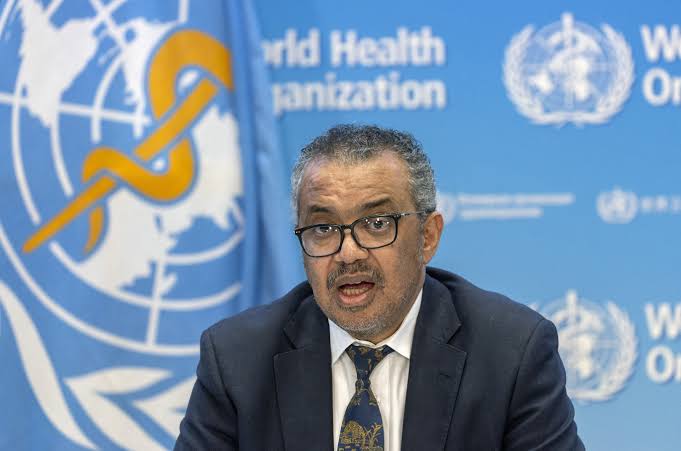The World Health Organisation (WHO) has commended Nigeria, China, Egypt, Russia, Brazil, and Denmark for reducing the mortality rate in Non-communicable Diseases (NCDs) for their citizens.
The biggest gains were driven by declines in cardiovascular disease and certain cancers—such as stomach and colorectal cancers for both sexes, cervical and breast cancers for women, and lung and prostate cancers for men.
In contrast, pancreatic, liver cancers and neurological conditions contributed to rising mortality in many countries.
WHO, in a report “Saving lives, spending less” released on Thursday, revealed that an additional investment of just US$3 per person annually in tackling NCDs could yield economic benefits of up to US$1 trillion by 2030.
The UN health agency, however, called on Member States to invest more in cost-effective solutions to manage NCDs and mental health.
Alongside the report, WHO shared a new analysis of country-level progress in reducing NCD mortality between 2010 and 2019.
It stated that while 82 per cent of countries achieved reductions during this period, the rate of progress has slowed significantly across most regions, with some countries even experiencing a resurgence in NCD-related deaths.
NCDs are responsible for the majority of global deaths, while more than one billion people live with mental health conditions.
Alarmingly, nearly 75 per cent of deaths related to NCDs and mental health conditions occur in low- and middle-income countries, accounting for 32 million lives lost each year.
In just a few days—on September 25, —Heads of State and Government will convene in New York for the Fourth United Nations General Assembly High-Level Meeting (HLM4) on prevention and control of NCDs and the promotion of mental health and well-being.
The meeting aims to adopt an ambitious Political Declaration to accelerate global action and investment in these critical health and development areas.
“Noncommunicable diseases and mental health conditions are silent killers, robbing us of lives and innovation,” Dr Tedros Ghebreyesus, WHO Director-General said.
“We have the tools to save lives and reduce suffering. Countries like Denmark, South Korea, and Moldova are leading the way, while others stalling. Investing in the fight against NCDs isn’t just smart economics—it’s an urgent necessity for thriving societies.”
NCDs include cardiovascular diseases (such as heart attacks and strokes), cancers, chronic respiratory diseases (such as chronic obstructive pulmonary disease and asthma), and diabetes, among others.
Mental health conditions, such as anxiety and depression, he said, were also highly prevalent across all countries and communities, affecting people of all ages and income levels.
Without urgent and sustained action to tackle these, millions more lives will be lost prematurely.
While the majority of countries made progress in reducing the risk of dying prematurely from an NCD between 2010 and 2019, 60 per cent experienced a slowdown in progress compared to the previous decade.
The WHO chief said that solutions to tackle NCDs and promote mental health and well-being were both affordable and highly cost-effective.
Governments, he said, often face intense lobbying from powerful industries whose products contribute to disease.
He said tobacco, alcohol, and ultra-processed food companies frequently attempt to block, weaken, or delay life-saving policies—ranging from health taxes to marketing restrictions aimed at protecting children.
“It is unacceptable that commercial interests are profiting from increasing deaths and disease,” Dr Etienne Krug, Director of WHO’s Department of Health Determinants, Promotion and Prevention said.
Governments, he said, must put people before profits and ensure evidence-based policy is not derailed by corporate pressure.
Scaling up implementation of WHO’s ‘Best Buys’, a set of high impact interventions including tobacco and alcohol taxation, protecting children from harmful marketing, managing hypertension, and scaling up cervical cancer screening would cost just an additional US$3 per person per year on average.
The return on investment is substantial: by 2030, full implementation could save 12 million lives, prevent 28 million heart attacks and strokes, add 150 million healthy life years, and generate over US$1 trillion in economic benefits.
The upcoming Fourth UN General Assembly High-Level Meeting (HLM4) on NCDs and mental health is the most significant political opportunity of the decade to drive transformative change.
HLM4 offers a unique opportunity to adopt an ambitious, action-oriented and achievable Political Declaration on NCDs and mental health—grounded in evidence, anchored in human rights, and aimed at delivering impact through and beyond 2030.
With a bold Political Declaration, Heads of State and Government can not only recommit to achieving the 2030 targets but also set the vision for the next decades —charting a new course that will save lives and improve well-being for future generations.
“We know what works. The time to act is now. Governments that act decisively will protect and save lives, cut costs, and unlock growth.
“Those that delay will pay in lost lives and weaker economies,” Dr Devora Kestel, Director of WHO’s Department for NCDs and Mental Health, said




